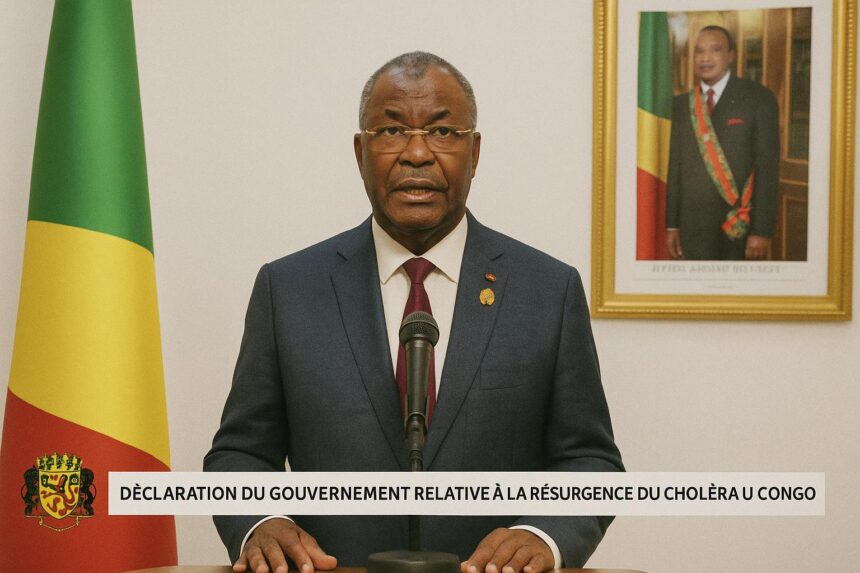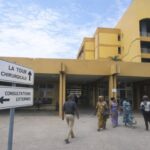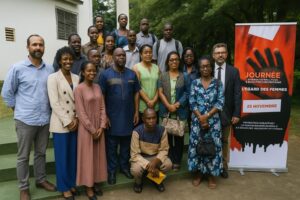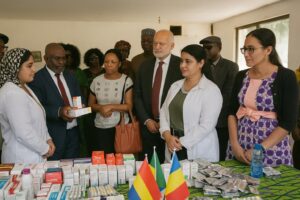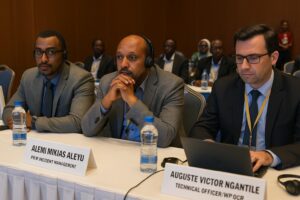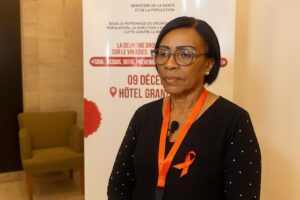Early Warning Echoes across Pool Malebo
The placid expanse of the Pool Malebo lagoon rarely betrays geopolitical tremors, yet on 10 July 2025 the usual riverine bustle was pierced by reports of acute watery diarrhoea emanating from the island district of Mbamou. Within a fortnight the epidemiological curve climbed to 103 suspected infections and twelve probable fatalities, figures now posted on the public dashboard of the Congolese Ministry of Health. While such numbers, in absolute terms, remain contained, the doubling time of cases convinced national authorities that a classical vibrio cholerae scenario was unfolding. Local clinicians, echoing protocols refined during previous Central African outbreaks, forwarded the first stool samples to the National Public Health Laboratory, a move that would anchor subsequent policy choices.
- Early Warning Echoes across Pool Malebo
- Laboratory Confirmation and Epidemiological Footprint
- Government Mobilisation: From Cabinet Room to Riverbanks
- Regional Dynamics and the Tightrope of Cross-Border Health Security
- Community Engagement and Behavioural Diplomacy
- International Partnerships: A Pragmatic Multilateralism
- Toward Sustainable Water Governance After the Storm
Laboratory Confirmation and Epidemiological Footprint
The laboratory verdict arrived with scientific clarity: two of three initial specimens harboured vibrio cholerae O1, serotype Ogawa, the archetypal strain behind most contemporary African epidemics (WHO, 2024). This confirmation, later cross-checked by regional reference centres, conferred juridical weight on the declaration of an epidemic under the International Health Regulations. Genomic fingerprints indicate a lineage closely related to isolates retrieved last semester in Cabinda and Kinshasa, a reminder that pathogens ignore colonial cartography even as diplomats still debate it. The spatial footprint, for now restricted to Mbamou’s riparian settlements, nonetheless sits uncomfortably close to Brazzaville’s urban perimeter, prompting epidemiologists to speak of a ‘peri-urban bridgehead’ rather than a remote rural flare-up.
Government Mobilisation: From Cabinet Room to Riverbanks
The response architecture was activated with notable celerity. Health Minister Jean-Rosaire Ibara convened an inter-ministerial task force under the direct aegis of Prime Minister Anatole Collinet Makosso, aligning health, water, interior and communication portfolios behind a single operational plan. Chlorination units were ferried to the island within forty-eight hours; mobile treatment centres, staffed by physicians conversant with the latest Africa CDC protocols, began administering oral rehydration salts and doxycycline before case figures could crest. Observers from the diplomatic corps confirm that President Denis Sassou Nguesso’s weekly briefings emphasised ‘zero administrative latency’, a phrase that has since peppered local headlines as a shorthand for decisive governance.
Regional Dynamics and the Tightrope of Cross-Border Health Security
Cholera’s re-emergence in Congo-Brazzaville coincides with parallel notifications from Angola’s Cabinda enclave and the Democratic Republic of Congo’s Equateur Province (Africa CDC, 2025). Barges, pirogues and informal ferries knit these riverine economies together; they also offer bacteria a complimentary ticket downstream. Brazzaville’s authorities therefore coupled clinical measures with river-harbour surveillance, disinfecting jetties and insisting on health-declaration cards for cross-border boatmen. While such steps may inconvenience traders, neighbouring health attachés privately concede they align with the spirit, if not the letter, of recent SADC-ECCAS coordination frameworks on transboundary diseases.
Community Engagement and Behavioural Diplomacy
Harnessing community trust can be as decisive as intravenous fluids in arresting cholera’s trajectory. Local chiefs and faith leaders on Île-Mbamou have been enlisted to relay hygiene advisories in Lingala and Kituba, displacing rumours with evidence-based counsel. National radio broadcasts reiterate the triad of preventive acts—handwashing with soap, consumption of treated water and avoidance of raw produce—while call-in segments field citizens’ concerns in real time. Such behavioural diplomacy, rooted in respectful dialogue, mirrors lessons distilled from COVID-19 risk-communication playbooks and is proving instrumental in tempering anxiety without courting complacency.
International Partnerships: A Pragmatic Multilateralism
The Congolese authorities, while asserting national ownership of the response, have welcomed technical assets from the United Nations system and bilateral partners. The World Health Organization dispatched logisticians to reinforce the case-management cascade; UNICEF pre-positioned water-purification tablets and bladders; Médecins Sans Frontières kept an advisory team on standby. In diplomatic circles the episode is read as a textbook illustration of pragmatic multilateralism: the state retains strategic steering, external actors supply targeted expertise and no narrative of dependency takes root. A senior European envoy, requesting anonymity, described the coordination meetings as ‘refreshingly agenda-free’—a rare accolade in a crowded humanitarian marketplace.
Toward Sustainable Water Governance After the Storm
Epidemics often function as unwelcome audits of infrastructure. In Brazzaville’s case, the outbreak has rekindled legislative interest in the pending Water Supply and Sanitation Bill, scheduled for debate in the next parliamentary session. Finance Ministry insiders intimate that concessional dialogues with the African Development Bank, paused during election season, have resumed with a focus on resilient river-water treatment plants. Such long-term investments, coupled with the immediate containment now under way, suggest that the cholera episode—while medically sobering—could catalyse durable progress toward Sustainable Development Goal 6. For the moment, however, epidemiologists will settle for a flattening curve and a serene Pool Malebo once more reflecting only the equatorial sky.

